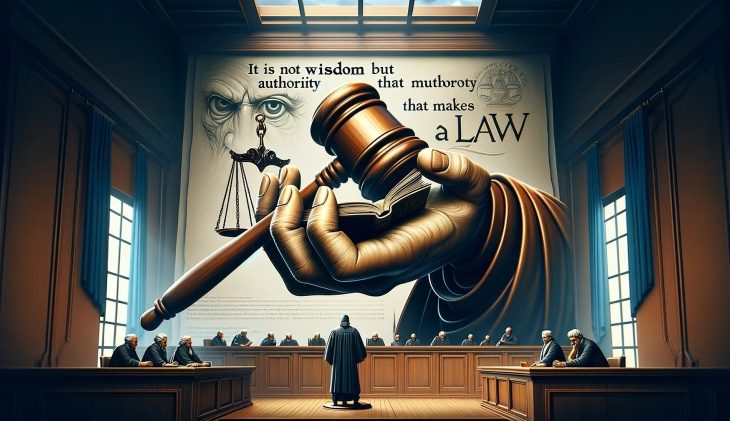The Role of Authority in Lawmaking
Life is too unpredictable and when you live in this world you should have an idea of Law and Wisdom. This question mostly asked that, how laws are made that authority, not wisdom, makes a law. Huge questions concerning the capability of authority in the regulative cycle and the impact on the laws shaping our society are raised by this assertion.
The Power of Authority
Authority plays a crucial role in the creation of laws it is not wisdom but authority that makes a law. t – tymoff . In a popularity-based society, authority is normally vested in chosen delegates who have been endowed with the ability to pursue choices for the benefit of the individuals they serve. These delegates, whether they are individuals from a regulative body or government authorities, are answerable for drafting, discussing, and at last passing laws that oversee different parts of our lives.
One of the essential justifications for why authority is fundamental in lawmaking is to guarantee the proficient working of society. Without a unified authority, it would be almost difficult to make and implement laws that advance request, equity, and reasonableness. Authority is the system inside which laws are made, carried out, and implemented, guaranteeing that society works in a firm and agreeable way.
The Role of Wisdom
While authority is necessary for the creation of laws, wisdom also plays a significant role in shaping the legislative process. Wisdom, in this context, refers to the knowledge, experience, and expertise that lawmakers bring to the table. It is through their wisdom that lawmakers can craft laws that address the necessities and worries of individuals they address.
Wisdom can emerge from different sources, including legal scholars, educated authorities, and public information. Lawmakers frequently depend on these sources to illuminate their dynamic cycle and guarantee that the laws they make are viable, only, and follow cultural qualities. In this sense, wisdom goes about as a directing power that assists lawmakers with exploring complex issues and pursuing informed decisions.
The Balance Between Authority and Wisdom
While both authority and wisdom are important in the lawmaking process, striking the right balance between the two can be challenging. An excess of authority without wisdom can prompt erratic and uncalled-for laws, while a lot of wisdom without authority can bring about an absence of conclusive activity and inadequate regulation.
Lawmakers should stand by listening to the wisdom of specialists and the voices of individuals they address. Thus, they can guarantee that the laws they make are educated by a different reach regarding points of view and are receptive to the requirements and upsides of the society they serve. Simultaneously, lawmakers should practice their authority mindfully and settle on difficult choices when important, regardless of whether they are not well known all the time.
Ultimately, the goal of lawmaking is to strike a balance between authority and wisdom, creating laws that are both fair and effective. This requires a careful consideration of the various factors at play, including the legal framework, societal values, and the practical implications of the laws being proposed Dogecoin Price .
Conclusion
While the facts confirm that authority assumes a huge part in the formation of laws, wisdom likewise has a significant spot in the regulative cycle. By consolidating the force of authority with bits of knowledge of wisdom, lawmakers can make laws that advance equity, decency, and the prosperity of society all in. It is through this sensitive equilibrium that the laws that administer our lives are made and upheld.







